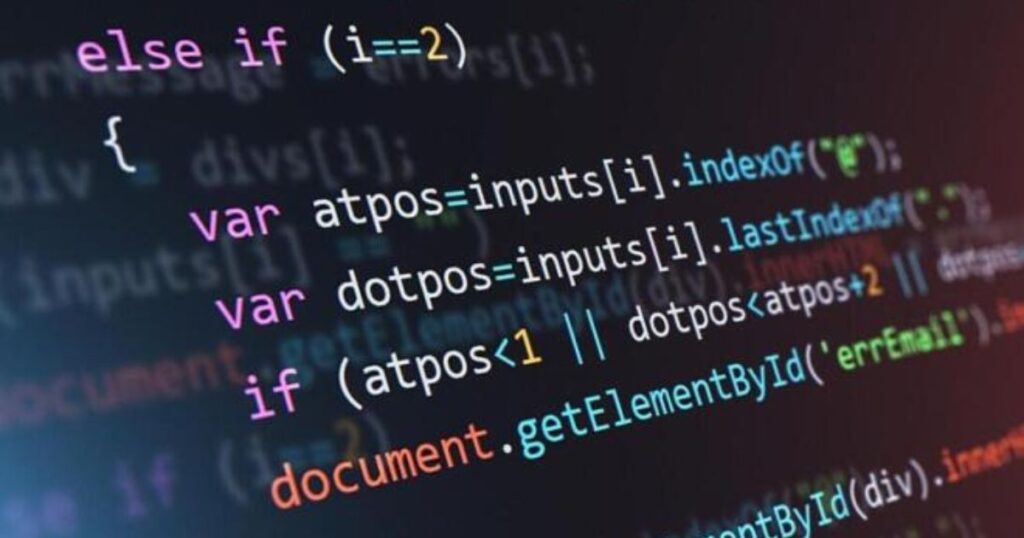Ever felt lost in the coding wilderness? You’re not alone. Whether you’re just starting out or you’ve been slinging code for years, there’s a set of unwritten rules that can make or break your dev journey. Let’s dive into these hidden guidelines that shape the way we code, collaborate, and grow in the ever-evolving tech landscape.
Introduction to Coding Etiquette
Remember your first day on a dev team? The nerves, the excitement, the fear of messing up? Coding etiquette is your secret weapon to fitting in and thriving. It’s not about fancy algorithms or knowing every programming language under the sun. It’s about how you work with others and contribute to the codebase.
Think of coding etiquette as the oil that keeps the dev machine running smoothly. It’s about respecting your teammates’ time and effort, making your code easy to understand, and being open to feedback. These unspoken rules apply whether you’re a fresh-faced novice or a battle-hardened sage.
The Importance of Code Readability
Ever tried to decipher code that looks like a bowl of spaghetti? Frustrating, right? That’s why code readability is the foundation of good coding practices. It’s not just about making your code pretty – it’s about making it understandable and maintainable.
Imagine coming back to your own code after six months. Would you understand what you wrote? If not, it’s time to level up your readability game. Use meaningful variable names, keep your functions short and sweet, and structure your code logically. Your future self (and your teammates) will thank you.
Embracing Version Control: A Must for All Developers
Ever lost hours of work because you forgot to save? Version control is your safety net. It’s not just for big teams or complex projects – it’s a lifesaver for solo devs too. Git is the go-to tool, but the principle remains the same: track your changes, branch out to experiment, and never lose your work again.
Think of version control as a time machine for your code. Made a mistake? No sweat. Roll back to a previous version. Want to try something wild without breaking everything? Create a branch. It’s like having a superpower in your coding toolkit.
The Art of Commenting Your Code

“What was I thinking when I wrote this?” Sound familiar? That’s where comments come in. But beware – there’s a fine line between helpful comments and clutter. The goal is to explain the why, not the what. Your code should be clear enough that it doesn’t need a play-by-play explanation.
Think of comments as notes to your future self or to someone picking up your code for the first time. Explain complex logic, document important decisions, and leave breadcrumbs for others to follow. But remember, the best code is self-explanatory. If you find yourself over-commenting, it might be time to refactor.
Learning from Others: Code Reviews and Pair Programming
Remember the dread of having someone look over your shoulder while you code? It’s time to embrace it. Code reviews and pair programming are goldmines for learning and improvement. They’re not about pointing out mistakes – they’re about sharing knowledge and catching blind spots.
Think of code reviews as a friendly chat about your code. It’s a chance to explain your thought process and get fresh perspectives. Pair programming, on the other hand, is like a jam session for coders. You bounce ideas off each other, learn new tricks, and create better code together.
Debugging: A Collective Responsibility
Stuck on a bug that’s driving you nuts? Don’t suffer in silence. Debugging is a team sport. It’s not about who’s to blame – it’s about finding solutions together. Sometimes, a fresh pair of eyes is all you need to crack a tough problem.
Think of debugging as detective work. You’re gathering clues, testing theories, and collaborating with your team to solve the mystery. Don’t be afraid to ask for help or offer it. The best teams tackle bugs together, sharing knowledge and building stronger code in the process.
The Balance Between Functionality and Optimization
Ever heard the phrase “premature optimization is the root of all evil”? It’s a trap many devs fall into. The key is finding the sweet spot between getting things done and making them run like a well-oiled machine.
Start by making it work. Once you have a functioning piece of code, then you can think about making it faster or more efficient. It’s like building a car – first, make sure it runs, then worry about making it go faster. Remember, you can’t optimize what doesn’t exist yet.
Keeping Up with Changing Technologies

Feel like you’re always playing catch-up with the latest tech? Welcome to the club. The tech world moves at lightning speed, and staying current is part of the job. But don’t panic – you don’t need to know everything about every new framework or language.
Focus on the fundamentals and core concepts. They’ll serve you well no matter what new tech comes along. Stay curious, be open to learning, and don’t be afraid to experiment with new tools. It’s not about knowing everything – it’s about knowing how to learn and adapt.
Fostering a Collaborative Coding Culture
Ever felt like coding was a lonely gig? It doesn’t have to be. Building a collaborative coding culture is about creating an environment where everyone feels comfortable sharing ideas, asking questions, and helping each other grow.
Encourage open communication, celebrate team wins, and create opportunities for knowledge sharing. Maybe it’s a weekly tech talk, a mentoring program, or just a casual coffee chat about coding challenges. Remember, a rising tide lifts all boats – when your team thrives, you thrive too.
Read Also: How to Get on First Page of Google Search? David Aziz Strategies
The Power of Clean Code Architecture
Ever stepped into a codebase that felt like a maze? That’s where clean code architecture comes in. It’s about organizing your code in a way that makes sense, not just to you, but to anyone who might work on it in the future.
Think of your codebase as a city. You want clear streets (functions), well-defined neighborhoods (modules), and easy-to-follow signs (documentation). It’s not just about making things look neat – it’s about creating a structure that’s easy to navigate, maintain, and expand.
Embracing Agile Methodologies in Your Workflow
Heard of Agile but not sure what the fuss is about? It’s more than just a buzzword. Agile methodologies are about adapting to change, delivering value quickly, and continuously improving your process.
Think of Agile as a mindset, not just a set of rules. It’s about breaking big projects into manageable chunks, getting feedback early and often, and being flexible enough to change course when needed. Whether you’re working solo or in a team, Agile principles can help you work smarter, not harder.
The Importance of Security in Coding Practices

Think security is just for the ops team? Think again. In today’s world, every developer needs to have security on their radar. It’s not about becoming a security expert – it’s about building good habits that make your code less vulnerable to attacks.
Start with the basics: validate user inputs, encrypt sensitive data, and keep your dependencies up to date. Think of security as building a fortress around your code. Every line you write is a potential entry point – make sure you’re not leaving any doors open for the bad guys.
Cultivating a Growth Mindset in Development
Ever felt stuck in your coding journey? The key to breaking through is developing a growth mindset. It’s about seeing challenges as opportunities to learn, not roadblocks.
Embrace the power of “yet.” You’re not bad at debugging – you just haven’t mastered it yet. You’re not failing – you’re learning. This mindset shift can transform the way you approach coding, making you more resilient, creative, and open to new ideas.
The Role of Documentation in Sustainable Development
Documentation – the task every developer loves to hate. But here’s the thing: good documentation can save you hours of headaches down the line. It’s not just about commenting your code – it’s about creating a roadmap for your project.
Think of documentation as leaving a trail of breadcrumbs for future you (or your teammates). What problems were you trying to solve? Why did you make certain decisions? What are the gotchas someone new to the project should know about? A little time invested in documentation now can pay off big time later.
Balancing Work-Life and Continuous Learning
Feeling the pressure to code 24/7 just to keep up? Take a deep breath. Sustainable growth in tech is about balance. It’s okay (and necessary) to have a life outside of coding.
Set boundaries, make time for hobbies, and remember that rest is part of the learning process. Your brain needs downtime to process new information. Plus, diverse experiences can spark creativity and problem-solving skills in unexpected ways. You’re not just a coder – you’re a whole person with a life that enriches your work.
Navigating Code Ethics and Responsible Development
Ever stopped to think about the impact of your code? As developers, we’re not just writing programs – we’re shaping digital experiences that can affect millions. It’s crucial to consider the ethical implications of our work.
Think about accessibility, privacy, and inclusivity. Are you writing code that can be used by people with disabilities? Are you handling user data responsibly? Are your algorithms free from bias? These aren’t just nice-to-haves – they’re essential aspects of responsible development.
The Art of Code Refactoring

Remember that feature you rushed to complete last month? It works, but it’s not exactly your best work. That’s where refactoring comes in. It’s like giving your code a spa day – cleaning up, reorganizing, and improving without changing its external behavior.
Refactoring isn’t about fixing bugs or adding features. It’s about making your code cleaner, more efficient, and easier to maintain. Think of it as paying off technical debt. A little refactoring now can save you hours of headaches later.
Mastering the Art of Problem Decomposition
Faced with a mammoth coding task that seems impossible? The secret is breaking it down. Problem decomposition is the superpower that turns Goliath tasks into manageable David-sized chunks.
Start by identifying the main components of your problem. Then, break each of these down further. Keep going until you have a list of small, actionable tasks. It’s like eating an elephant – one bite at a time. This approach not only makes big projects less daunting but also helps in creating more modular, maintainable code.
Read Also: Hackerone-300m-4m-toulasbleepingcomputer to Boost Cybersecurity
The Importance of Soft Skills in Tech
Think being a great coder is all about technical skills? Think again. Soft skills like communication, empathy, and teamwork are just as crucial in the tech world. They’re what turn a good developer into an indispensable team member.
Learn to explain complex concepts in simple terms. Practice active listening. Be open to feedback and willing to compromise. These skills will help you collaborate better, understand user needs more deeply, and ultimately create better products.
Embracing Cross-Functional Collaboration
Ever felt like you’re working in a silo? In today’s interconnected tech landscape, that’s a recipe for disaster. Embracing cross-functional collaboration is key to creating well-rounded, successful products.
Get to know your designers, product managers, and QA testers. Understand their perspectives and challenges. When you see the bigger picture, you can write code that not only functions well but also aligns perfectly with the overall product vision.
Navigating the World of DevOps
Ever felt the frustration of “it works on my machine”? Welcome to the world of DevOps. It’s not just a buzzword – it’s a culture shift that’s changing how we develop, deploy, and maintain software.
DevOps is about breaking down the walls between development and operations. It’s about automating processes, continuous integration and deployment, and monitoring your applications in real-time. Embrace tools like Docker for containerization, Jenkins for CI/CD, and Prometheus for monitoring. Remember, DevOps isn’t just for big tech companies – even solo developers can benefit from these practices.
The Importance of Data Structures and Algorithms

Think data structures and algorithms are just for coding interviews? Think again. Understanding these fundamentals can make you a more efficient and effective developer in your day-to-day work.
Knowing when to use a hash table versus an array, or how to implement a quick sort, can significantly improve your code’s performance. It’s not about memorizing solutions – it’s about understanding the underlying principles. Practice regularly, even if you’re not job hunting. Your future self will thank you when you’re optimizing a crucial piece of code.
Embracing Cloud Computing in Modern Development
Still running everything on your local machine? It’s time to get your head in the clouds. Cloud computing is revolutionizing how we build, deploy, and scale applications.
Platforms like AWS, Azure, and Google Cloud offer powerful tools that can supercharge your development process. Learn about serverless computing, cloud databases, and scalable architectures. Even if you’re working on small projects, understanding cloud principles can open up new possibilities and prepare you for larger-scale development.
The Power of Code Testing and Quality Assurance
Think testing is a waste of time? It’s actually a superpower. Thorough testing can catch bugs before they become disasters, improve code quality, and give you confidence in your work.
Start with unit tests for individual components. Move on to integration tests to ensure different parts work together smoothly. Don’t forget about edge cases and user acceptance testing. Remember, every test you write is a safety net for future changes.
Leveraging Open Source in Your Development Journey
Feeling overwhelmed by the need to code everything from scratch? Welcome to the world of open source. It’s a goldmine of pre-written code, tools, and frameworks that can supercharge your development process.
But it’s not just about using open source – it’s about contributing too. Fix a bug, improve documentation, or share your own project. It’s a great way to learn, gain exposure, and give back to the community that’s helped you.
The Role of Mentorship in Developer Growth
Stuck in a coding rut? A mentor could be your ticket to the next level. Whether you’re a novice looking for guidance or a sage developer seeking fresh perspectives, mentorship can be a game-changer.
Find someone whose skills and career path you admire. Be open to learning, but also be prepared to challenge ideas. Remember, mentorship is a two-way street – you might be surprised by how much you can teach your mentor too.
Embracing Failure as a Learning Opportunity

Messed up a deployment? Introduced a bug into production? Take a deep breath. Failure isn’t the end – it’s a stepping stone to success. The key is learning from your mistakes and using them to grow.
Conduct a blameless post-mortem after failures. What went wrong? How can you prevent it in the future? Share these lessons with your team. Remember, every great developer has a graveyard of failed projects and mistakes. It’s how you bounce back that counts.
Read Also: Crypto30x.com News: Your Go-To Source for Cryptocurrency Updates
FAQ’s
How do I start learning to code?
Choose a beginner-friendly language like Python. Use free online resources like Codecademy or freeCodeCamp. Practice coding daily, even if just for 30 minutes. Work on small projects to apply what you learn. Join coding communities for support and guidance.
What’s the best way to improve code readability?
Use clear, descriptive variable and function names. Keep functions short and focused on one task. Use consistent indentation and formatting. Add comments to explain complex logic. Break long code blocks into smaller, manageable chunks.
How important is version control for solo developers?
It’s crucial, even for solo projects. Helps track changes and revert if needed. Allows experimentation without fear of breaking code. Makes it easier to maintain different versions of your project. Prepares you for collaborative work in the future.
How do I balance learning new technologies with mastering current skills?
Focus on core programming concepts first. Stay updated with industry trends through blogs and podcasts. Experiment with new tech in small side projects. Attend local meetups or online webinars for exposure to new ideas. Don’t try to learn everything – pick technologies relevant to your goals.
What’s the best way to handle coding burnout?
Take regular breaks during coding sessions. Engage in non-coding hobbies to refresh your mind. Set realistic goals and celebrate small victories. Connect with other developers for support and motivation. Remember it’s okay to step away and come back with fresh eyes.
Final Thoughts: Your Unique Path in the Coding Universe
As we wrap up, remember that these unspoken rules are guides, not gospel. Your journey as a developer is uniquely yours. Embrace these principles, but don’t be afraid to forge your own path.
Stay curious, keep learning, and never lose sight of why you started coding in the first place. Whether you’re debugging a tricky issue, mentoring a junior dev, or launching a groundbreaking app, remember that you’re part of a global community of problem solvers and innovators.
So, novice or sage, newbie or veteran, welcome to the ever-evolving world of coding. It’s a wild ride, but with these unspoken rules as your compass, you’re well-equipped to navigate the challenges and seize the opportunities that lie ahead. Happy coding!

Hello, I’m Scarlett Autumn an author at Trendyloams.com, specializing in Business, Tech, Lifestyle, and News. My writing offers insightful analysis and engaging content, covering a wide range of topics. With a talent for simplifying complex concepts, I ensure my work is both accessible and thought-provoking. Follow me on Trendyloams.com for fresh perspectives and the latest updates on what’s shaping the world of business, technology, and beyond.

